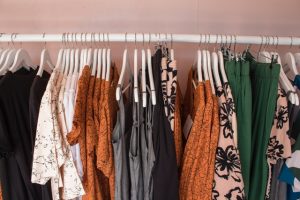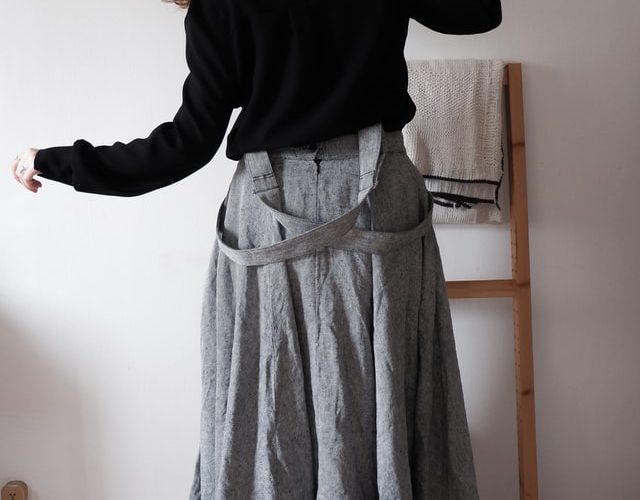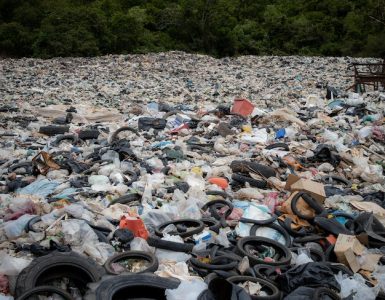Upcycling breathes new life into discarded objects, transforming them into something better.
This eco-conscious approach, a direct challenge to rampant consumerism, has taken the fashion world by storm. From established luxury brands to new startups, Indian companies are now crafting high-end garments from repurposed buttons, beads, and fabrics, proving that sustainability and style can coexist beautifully.
This article explores Indian upcycling brands that are not just creating beautiful clothing from discarded materials, but are making environmental responsibility undeniably fashionable. As the saying goes, one person’s trash is another’s treasure, and these brands are living proof.
Come, let us see how these ventures are leading the way for upcycled fashion in India.
Material Library of India
The Material Library of India is a leading research and design consultancy dedicated to unlocking the potential of industrial and agricultural waste through consultation and awareness initiatives.
The Noida-based startup has developed specialized expertise in creating innovative, data-driven solutions for repurposing these discarded materials for nearly a decade.
Material Library of India founder Shubhi Sachan’s journey toward sustainability began after spending six years in the fashion and textile industry. Witnessing the stark contrast between the materials used in production and the final, polished products created a profound disconnect.
Her work now focuses on channelling post-industrial and agricultural waste, by proposing alternative applications for these materials and by challenging the conventional view of waste as destined for landfills or incinerators.
The upcycling company’s current offerings include upcycled pillows and yardage made from textile waste.
Dwij
Founded in 2017 by mechanical engineer Soumya Annapurna Kalluri, Dwij upcycles denim fabrics into stylish and functional bags.
Soumya Kalluri’s inspiration stemmed from her research at Godrej’s Innovation and Design Centre, where she analyzed industrial waste and recognized the potential to divert old jeans from landfills.
The bootstrapped company sources “third-grade jeans” from Mumbai traders. After an industrial washing process, the denim is transformed into bags, toys, jewellery, accessories, home decor, furnishing, etc.
Mumbai-based Dwij has upcycled thousands of jeans, creating many of their items priced below Rs 1000 and selling them through its website and other sustainable e-commerce platforms. Dwij demonstrates that upcycled fashion can be affordable.
Ka-Sha
Founded by Karishma Shahani in 2011, Ka-Sha is an Indian sustainable fashion brand celebrated for its unique blend of traditional Indian textiles and craftsmanship with contemporary design.
Creating distinctive garments, accessories, and home decor, Ka-Sha’s philosophy centres on sustainability, ethical practices, and social responsibility, all while maintaining a fashion-forward edge.
The brand champions conscious consumerism and strives to positively impact society and the environment through zero-waste design and by maximizing fabric use to minimize waste.
Furthermore, they actively preserve India’s rich cultural heritage by collaborating closely with traditional artisans and craftspeople, supporting their skills and techniques.
Twirl.Store
Kolkata-based Twirl Store is an upcycled fashion brand in India that gives a new life to a range of old and discarded items.
Twirl Store collects unwanted clothing and fabrics, from individuals and organisations across India and prevents them from going to landfills.
Founded by Sujata Chatterjee in 2017, Twirl Store employs rural women who make products like shopping bags, tote bags, sling bags, laptop bags, etc. Apart from bags, the company also makes fashion accessories like jackets, scarves, stoles, masks, and jewellery.
In our conversation with Sujata, we asked what kind of clothes Twirl Store accepts, “We accept anything that is made of fabric, which can be clothes, bedsheets, curtains, table cloths. Anything which is made of fabric, which you are not using in your homes, we would be glad to take that. The only request is that it not be completely torn or discolored because then it is difficult for us to upcycle. Anything that is in fairly decent condition, we would be happy to take them and give a new life to it.”
I was a Sari
Founded by Stefano Funari, this sustainable fashion brand weaves together upcycled heritage, women’s empowerment and haute couture.
I Was a Sari empowers women artisans by repurposing sarees. By collecting old sarees, the brand transforms them into a range of contemporary products, from clothing, accessories, jewellery and home decor.
This work not only reduces textile waste but also provides sustainable livelihoods for women in marginalized communities.
Doodlage
Driven by a passion for reinvention, Kriti Tula, Paras Arora, and Vaibhav Kapoor have built their fashion label around the ethical principles of upcycling and recycling.
From transforming unusable spools of thread into fabric to crafting knitted mufflers and sweaters from repurposed fabric strips, the Delhi-based Doodlage style is casual and versatile. While most of Doodlage’s products cater to female fashion, there are items available for males as well.
The Future of Upcycled Fashion in India

While India’s upcycling movement is gaining traction, challenges remain. Lack of awareness about upcycling and its benefits is a key hurdle, with many remaining unfamiliar with its contribution to sustainability.
Limited availability of upcycled products in mainstream retail also poses a challenge, despite the growing number of brands in this space. India’s upcycling movement has extended beyond established brands and startups.
A thriving community of independent designers and artisans is embracing upcycling to express their creativity and champion sustainability. By creatively transforming discarded materials, different ventures are reducing textile waste, fostering a circular economy, and empowering local communities.
In conclusion, the future of upcycled fashion in India looks promising. Rising environmental awareness and increasing demand for sustainable products are creating exciting new opportunities.
With support from consumers, policymakers, and industry leaders, upcycling has the potential to revolutionize the fashion industry, fostering a more circular and sustainable future.
To learn more about Sustainable Fashion, you can read these articles –
Tips For Making Your Wardrobe More Sustainable. Read here.
What is Sustainable Fabrics in Sustainable Fashion? Read here.
Make a Sustainable Fashion Statement: Opt for Rental Fashion. Read here.






Add comment